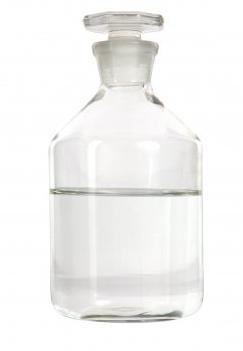isopropyl alcohol |
|
 |
|
Item : 67-63-0 |
|
Details :Isopropyl alcohol is a colorless, combustible liquid with a wide variety of uses. It has a wide range of uses in the home and is used in laboratories, in medicine, and in many manufacturing industries. Two of its most popular uses are as a solvent and a cleaning fluid. This alcohol does have some toxic properties, however, so people should be careful when they use it. Rubbing AlcoholAlong with ethanol, isopropyl is one of the types of alcohol commonly used as the primary ingredient of rubbing alcohol. Rubbing alcohol is known as surgical spirit in some countries, including the UK and Ireland. Under both names, the solution is typically 70% isopropyl or ethanol and 30% distilled water. The alcohol in the liquid is denatured. In this context, denatured does not mean the substance is no longer alcoholic. It means that the alcohol has been mixed with other chemicals to make it undrinkable, by making it poisonous or nauseating, or by making it taste or smell extremely unpleasant. This is done to discourage people from drinking it. Medical UsesIn medicine, isopropyl alcohol is often used in disinfecting pads, which are usually cottonor gauze moistened with a solution of 60% to 70% alcohol diluted in water. These pads are used by medical professionals for tasks such as sanitizing small instruments, wiping down surfaces, and cleaning a patient’s skin before an injection. Many home medicine cabinets contain a small bottle of rubbing alcohol that's used as an antiseptic for cuts and scrapes. This alcohol was once the popular choice for medicinal rubdowns, which is why it came to be known as rubbing alcohol. When applied to the skin, the water in the liquid quickly evaporates, cooling the skin and rapidly reducing body temperature. It was once regularly used for reducing fever in children, but the rapid temperature decrease is no longer considered beneficial, so health care professionals no longer recommend it for this purpose. Cleaning UsesSince isopropyl alcohol is a solvent, it has many uses as a home cleaning agent. It is often used to clean dirt from hard-to-reach areas, such as between keys on keyboards and on mouse wheels. Since it evaporates almost immediately, there is little risk of shock or damage to electrical components, and it can even be used to clean the lasers in CD andDVD drives. The alcohol also removes stubborn glue residue and dried ink, and it can remove stains from most natural fibers, including cotton, silk, and wood. AutomotiveIsopropyl alcohol is a common component of fuel additives intended to prevent the accumulation of water in fuel lines, and to prevent any water in the fuel from separating and turning to ice. For the same reason, it can be sprayed onto windshields to melt any icy buildup, and it can also be used to clean the glass. Diluted in water, it's often used to remove wax or polish residue. Laboratory UsesOne of the most common uses of isopropyl in the laboratory is as a disinfectant to clean equipment and work surfaces. When used properly, it kills a significant number of bacteria and other potential contaminants, which is why it's also used as a hand sanitizer in labs and hospitals. Isopropyl alcohol can be used as a preserving agent for biological specimens. It's often used as a way to dilute test samples, and can be used as a reaction medium for a number of chemical reactions. It can also be used in place of ethanol, another type of alcohol, to extract DNA from a cell. In the laboratory, this type of alcohol may be labeled isopropanol, isopropyl, isopro, iso, or with the acronym IPA, for isopropanol alcohol. It is also sometimes called 2-propanol, in reference to being an isomer of a compound called propanol. An isomer is a molecule that has the same chemical formula as another molecule, but a different physical arrangement of atoms. This means that the molecules are different shapes and have different chemical properties. IndustrialIsopropyl has a wide range of industrial uses. It is widely used in printing industries as a solvent and for cleaning delicate equipment. The manufacture of most computer components involves the use of isopropyl as a solvent, and it is used in the manufacture of paint, as well as being used as a paint stripper. Even in industries that don’t use thisalcohol in manufacturing, it is often used to clean and degrease machinery. Safety ConcernsAlthough isopropyl alcohol is used in many homes, it is not a harmless substance. Preparations sold for home use typically have a concentration of 70% at most, and they are therefore less toxic than the industry-standard versions, but care should still be taken when handling them. As an alcohol, it's extremely flammable in the presence of high heat, sparks, or an open flame, and can be harmful if ingested or inhaled. Pure isopropyl is considered a toxic substance, because it is known to readily absorb through the skin. Possible effects include headache, dizziness, vomiting, nausea, unconsciousness, and coma. Without prompt medical treatment, death can occur due to central nervous system depression. Swallowing or inhaling it can also cause these effects, so the alcohol should be handled with protective clothing, including gloves and goggles, in a well-ventilated area. The long-term effects of working with or around this alcohol are not well understood. Chronic exposure to many solvents is known to increase the risk of liver and kidneydysfunction, and in extreme cases cause brain or nerve damage, but similar links have not been established for isopropyl. Some researchers and medical professionals believe there might be cancer risks associated with long-term exposure, but no definitive link has been established. |
|
| [Next127-18-4] [Previous627-45-2] | |
|

